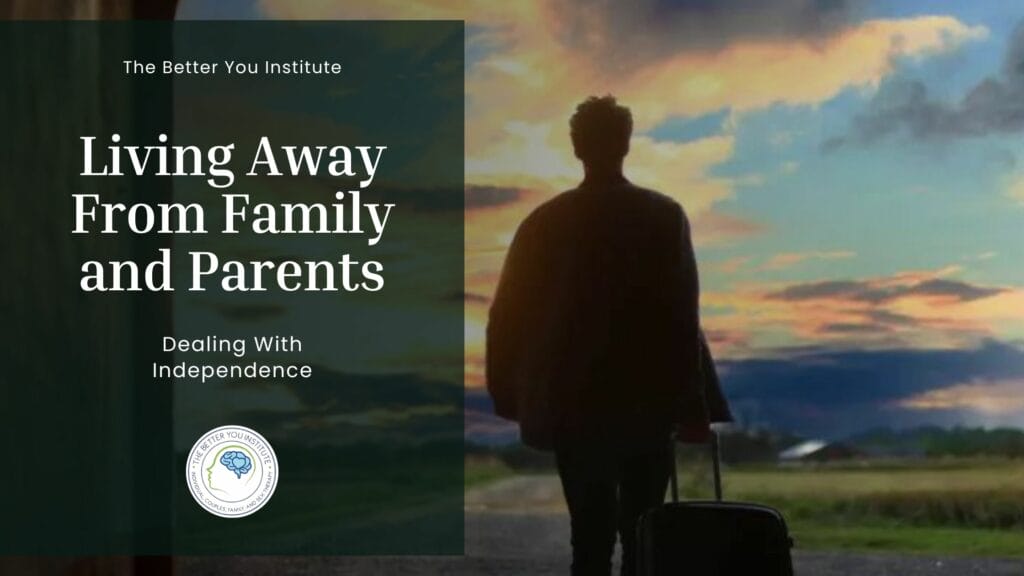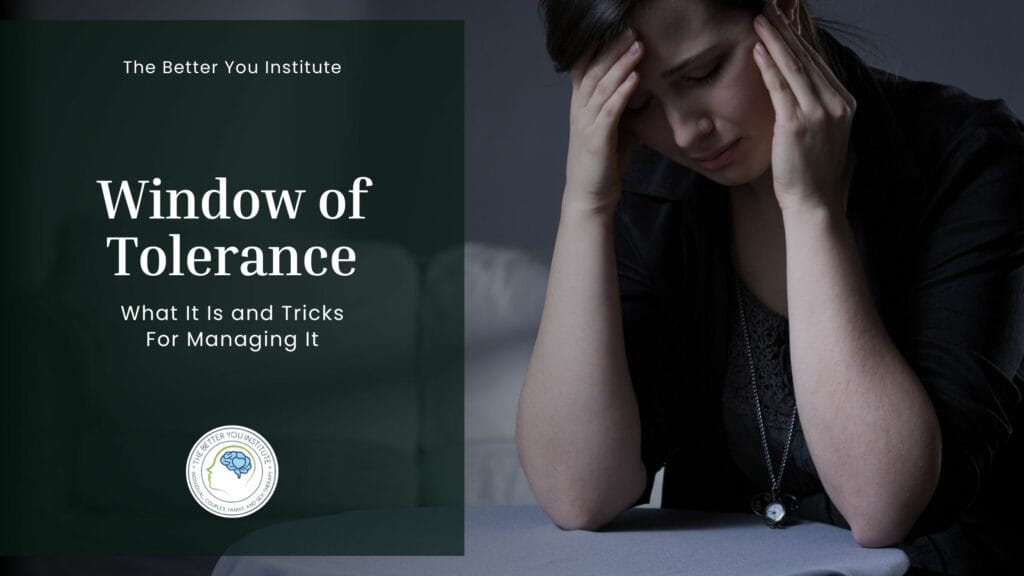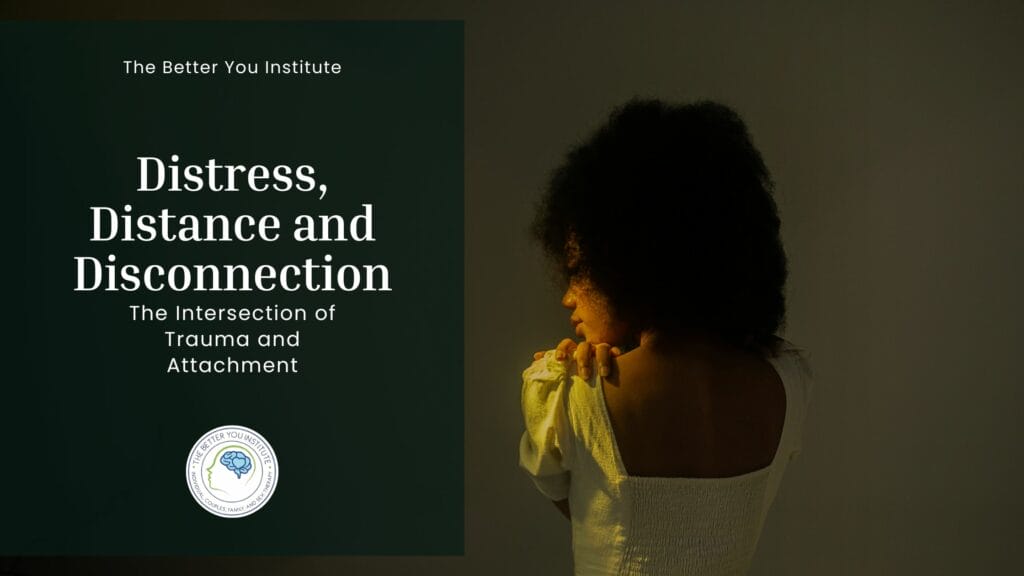Are you a young adult who has recently moved away from living with your parents? Are you a student who is living away from your parents in a dorm or apartment? Are you possibly considering moving away from home or going to live on-campus at a college? Living away from family and parents is a big step in the life of a young adult. Albeit exciting and empowering, it can also be very intimidating. Living away from parents can bring on many new challenges at one time which can leave you feeling overwhelmed. However, living on your own for the first time is a natural first step to independence. With a few tips in mind, you will be on your way to an exciting and fulfilling experience as an independent adult.
Table of Contents
Taking Care of Yourself While Living Away From Family and Parents
Living away from your parents may seem exciting at first. No rules! You can eat what you want, sleep whenever, and no more chores. Though this is a tempting lifestyle to fall into, one of your main priorities when living by yourself should be taking care of yourself! Keeping a close eye on your wellness will positively translate to all other areas of your life.
Taking care of yourself can be simple. Work to get enough sleep, eat well, and try to get exercise. Pay attention to what your body is telling you. Are you feeling sluggish? Are you yawning more than usual? Have you become short-tempered? Making a schedule for each day will help you stay on track with your eating and how many hours you need to set aside to exercise and sleep. You don’t need to spend hours at the gym. Do your research and find out what your body type needs. Some research reports as little as 20 minutes of cardio four times a week can majorly improve your health.
Particularly for college students, it is easy to let these simple things fall by the wayside when the stress of work and/or school begins to build up. Although it may be hard to manage many commitments, remember that it will be difficult to give 100% if you’re not at 100%, for example, if you are sleep-deprived or eating empty calories regularly.
What about when taking care of yourself is even more urgent? When living away from parents, it can be a particular challenge to handle your sickness. For college students, it may difficult to handle your health when your professors may be strict about missing classes. The key is keeping tabs on your symptoms. Rudimentary illnesses can become very serious if you do not take proper enough care of yourself. For example, it is easy to forget to hydrate yourself enough or eat enough food. Your parent won’t be there anymore to nag you into drinking water or make you chicken noodle soup. Dehydration or malnutrition from something as small as the stomach flu can require hospitalization if you don’t keep proper tabs on your food and water intake.
In other instances, you may acquire a virus or infection that is already serious. If you are unsure if you need medical attention, get in touch with a trusted friend, roommate, or neighbor. In college, you will have access to your health center. For college students, this may be your first step when you are feeling unwell. For others, your best free doctor is your local pharmacist; stop by or call and speak to them. Don’t neglect yourself. It may seem not very comfortable to ask for help, but there are times when you need it. If you are sexually active, you should also be getting regular sexually transmitted infection tests. We recommend every 3-4 months if you are sexually active with multiple partners.

Finances While Living Away From Parents
Many young adults often cringe at the mention of money, but it quickly becomes an essential component of living away from parents. If you are a college student, you might still have some financial support from your family in the form of tuition, housing, or meals. Other college students and those entering the workforce may balance many types of expenses all at once.
Before you do anything, budget, budget, budget! You can only adequately handle your finances when you know what money has to go where.
You may find it helpful to keep a document or spreadsheet listing all of the money you receive (paychecks, public assistance, tuition refunds, gifts, etc.) with what you are spending (bills, rent, food, necessities, etc.). It would be best if you were recording this information regularly (at least once a month). When you do this, always plan for the worst-case scenario, meaning if you are unsure if you will be receiving a certain amount of money, don’t use it in your budget. Similarly, even if there is a 10% possibility of an expense, include it in your budget. Unexpected expenses may be in the form of a car part, ticket, taxes, or clothes for a new job. You will feel most prepared if you know for sure that you will have the money you need. Creating a spreadsheet may sound tedious, but the work you put in up front will pay off in the long term by decreasing stress about money. You will feel more at ease, which plays into your overall well-being.
After settling how much of your income is going towards your expenses, you can determine what disposable income you have left. It is okay to have some debt as a young adult (as many young adults in the United States already do). However, the process of building credit also begins now.
Another thing you may be handling while living away from your parents is your first bank account or credit card. Most banks and credit card issuers have mobile apps to make it easier for you to check your balance, deposit checks, and lock your account if you see fraudulent activity. There are also budgeting apps and financial planning apps. Using mobile apps is a quick and easy way for you to keep track of finances since you will always carry your financial information with you!
If you are interested in using a credit card, do your research. Is a cashback or mileage option best for you? Do you need 0% APR for the first year to get your feet on the ground? Make your credit card work for you while also building your credit score. Credit scores are based partly on how old the length of your credit line is (i.e., your credit score will be higher if you took your first credit card or have a bill in your name in 2016 versus 2018).
Cleanliness
Cleaning is another topic that you may find irritating or intimidating. Your parents may have asked you to clean certain things while you lived with them. If so, you likely got a good look at the task of cleaning a home. When you live on your own for the first time, it can be easy to forget how important it is to keep your living space clean. You will be both healthier and happier. Cleaning assures that your new home is free of dirt and germs, but a clean appearance and smell will also help you feel calmer and more comfortable.
Living away from parents means the mess is all yours! Go at it at the speed and frequency you prefer. If you live with roommates, it might be difficult to share the work evenly. Consider making a “chore chart” and rotating different cleaning duties each week. Discuss this in person with your roommates to make sure everyone is on board. If a conflict arises, discuss things in person instead of over text. Tempers can boil over much quicker over electronic communication, and you will likely have a more positive response from a negligent roommate if you address your concerns in person.
Being Social
Living away from parents isn’t all work and responsibilities! Living with parents or siblings, you frequently have another person in the house ready to do activities with, eat a meal with, or chat. When you live independently, a massive point of social contact may become harder to attain, and you might feel a little lonely. Consider living with roommates. You can effortlessly do many of the same family-oriented activities that you did with your parents, such as watching TV, cooking, or spending leisure time together. Living with roommates also provides you with support in paying your bills and staying on track with your budget. Or, if you choose to live on your own, just as you schedule your eating and workouts, be sure to plan social interactions with friends or family members every week.
Sometimes being [best] friends with your roommate(s) don’t work out. In this case, you may need to branch out and find other ways to scratch that social itch. If you are in college, then clubs, classes, and public spaces are accessible places to meet people, but you often have to put yourself out there. If you’re not in college, you may be struggling more to meet people. Be active in your workplace, join a social club, or pursue volunteer work if time allows. These are great opportunities to form many types of social relationships or even to network professionally.

Local Philadelphia social clubs and volunteer opportunities you may be interested in:
- Philadelphia Sport and Social Club (PSSC)
- Court Appointed Special Advocates (CASA)
- Big Brothers, Big Sisters
- Casa Soccer League
- Penn NHL
- Cricket Club
- Google search for “where can I play [the sport you enjoy playing] in [your area].”
- InMovement
- Rebel Circus Arts
- Volunteer Center for South Jersey
- MeetUp groups with a common interest
- Book club
- Cooking club
- Harry Potter club
- Dungeons and Dragons
- Board games
- Writing
- Photography
- Bird watching
- Pennsylvania Association for Sustainable Agriculture (PASA)
- Do a simple Google search of “volunteer opportunities in [your area].”
Maintaining a Healthy Relationship With Your Parents
Moving away from your parents is hard. But it’s probably just as hard – if not worse – for your parents! Sometimes the relationship you had with your parents while living with them is different from what you have as an adult. This is okay! You are exploring life on your own and becoming more and more of an individual than you were even as a teenager, and it’s okay not to see eye-to-eye all of the time.
As a young adult, you should try to have at least casual and occasional contact with your parents just to “check-in” now and again. Sometimes this relationship can be more intense and become uncomfortable. Your parents may be showing up at your home or dorm unannounced and more frequently than you’d like or demanding multiple phone calls in a day. Living away from your parents means shifting the dynamic of you like a child they needed to care for to you as an adult they can trust will do well on their own.
If you are bothered that your parents aren’t affording you the independence you expected, take an opportunity to tell them how you feel and set boundaries with them. Let them know that you want to take advantage of your independence to help you prepare for the rest of adulthood. Also, ask yourself if there might be a reason. Did something terrible happen to you after you moved out that might be causing their concern? Assuring your family that you are making positive decisions and taking care of yourself (and being honest about it!) can make a difference.
On the other hand, you may be wondering why your parents never call you. You might have questions about day-to-day things and would appreciate it if there was a mutual expression of need between you and your parents. Let them know how you are feeling. Invite them to visit you, or ask if there is a convenient time to call them each week to chat. Again, your feelings towards your parents might be warmer than the ones you felt as a teenager. If you feel an urge to reconnect with them, go for it. You will likely be pleased you did. We are never too old to ask our parents for their help or opinions now and then. They’re still your parents, after all.
Making Smart Decisions
Parents and guardians are the figures in our lives who watch out for us. Maybe you had parents that screened your every move to make sure you were always healthy and safe. Maybe your parents let you be more independent and put a lot of trust in you to take care of yourself. Either way, it can get complicated when you are out of sight of people who set your boundaries. As a newly independent adult, especially if you are a college student, the boundary between fun and safety may be blurry and unclear. There are activities of young adulthood that you may not receive approval for from your family. You will want to explore these events to see if they fit you, despite not fitting for some of your family members. Exploration is a necessary and natural tendency of young adults.
Not everything outside of your family’s approval is going to cause you harm, but you may also not worry enough about yourself to stay away from things that spell the most trouble. Know how to weigh risks and benefits. Does the benefit outweigh the risk? How likely are the risks? If harmed, how much would that risk affect your future? At the end of the day, we all have choices. Some of our decisions we are proud of, and some of our decisions allow us to learn important life lessons.
In some situations, we know the better choice and need to listen to ourselves. You might be living away from your parents, but if their voice is still ringing in your head now and then, you’re probably listening to the right instincts. Responsibly exercising your new freedom will assure you forge a positive path into adulthood.







